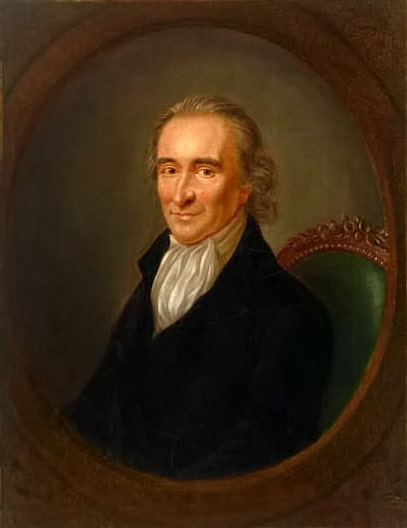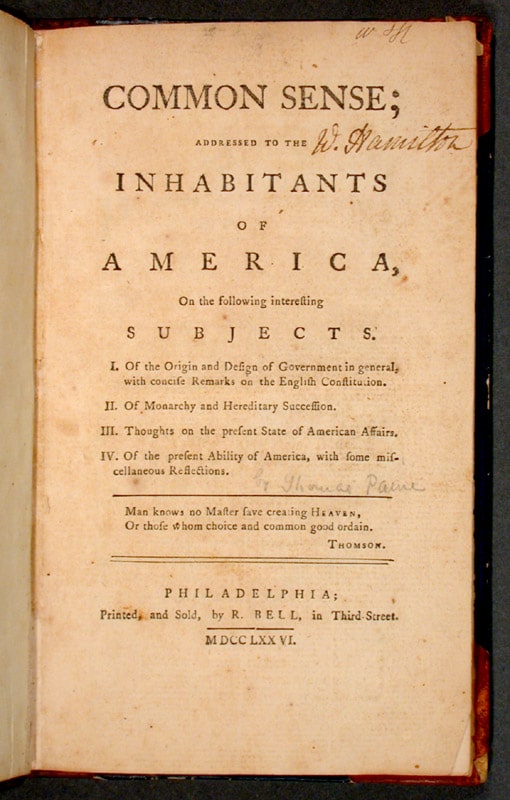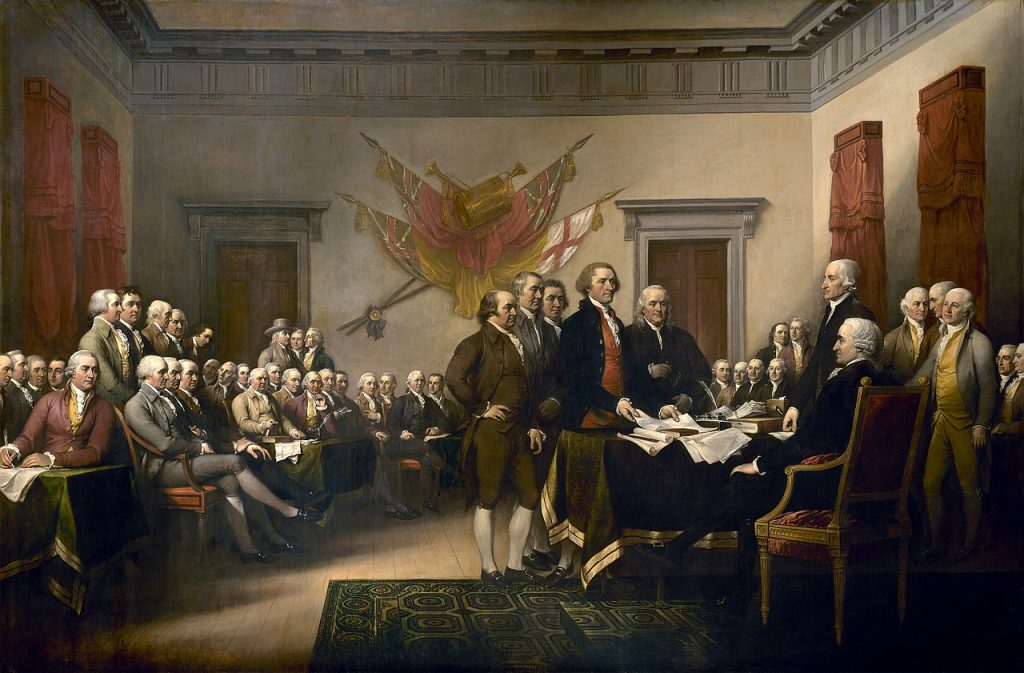Contents
Contents
The Enlightenment was an intellectual and philosophical movement that originated in Europe in the mid-to-late 17th century, lasting until the early 19th century.
The Age of Enlightenment, or the Age of Reason, as it was known, saw a shift in intellectual thought towards reason, science, individualism, and skepticism of traditional authority, forgoing reliance on established doctrines and institutions such as the monarchy and the church.
The Patriots’ use of Enlightenment ideals
Many of the most influential leaders of the American Revolution, including Thomas Jefferson, Benjamin Franklin, and Thomas Paine borrowed heavily from Enlightenment thinking.
Franklin and Paine in particular spent significant time in England and France during the Age of Enlightenment, studying its principles, and bringing them across the Atlantic.

In their writing, they used Enlightenment ideals to successfully turn the colonial population against the British government, despite the long-standing loyalties many still had to the British Crown.
- Jefferson and others echoed John Locke’s concept that all individuals have inherent rights (life, liberty, and property) and inspired colonists to believe in rights independent of British rule. This was most strongly reflected in the Declaration of Independence.
- In Common Sense, a hugely popular political pamphlet, Thomas Paine challenged the legitimacy of monarchy, presenting it as an outdated and oppressive system. Paine argued that hereditary succession and the idea of kingship contradicted the Enlightenment principle of reason and equality, claiming that government should be based on the consent of the people rather than on tradition or birthright.
- Paine and others appealed to reason and logic, rather than emotion or spiritual ideas, in their writing. This was a core tenet of how Enlightenment thinkers challenged authority, by arguing that all men were created equal, rather than using religious arguments, or relying on faith.
- Leaders such as John Adams advocated for a democratic government where power is vested in the people, aligning with Enlightenment ideals of republicanism.
How colonists responded
Enlightenment ideals resonated strongly with those living in the Thirteen Colonies.
At the time, the cultural distance between the British and the Thirteen Colonies was widening, due to a range of social, geographic, religious, and philosophical differences.
While many had significant respect for King George III, after colonists’ grievances over the Intolerable Acts were repeatedly ignored, Enlightenment arguments were convincing to a significant proportion of people.
It also helped that Patriot leaders like Thomas Paine and John Dickinson could produce compelling political pamphlets, which helped translate abstract Enlightenment philosophical thought into easily understood arguments that the colonists could get behind.

Although many in the colonies could not read, literacy rates were improving, and these pamphlets were often read aloud at common meeting points, making them an incredibly effective way of gathering political support.
Enlightenment during and after the war
Enlightenment principles didn’t just help to convince people to support the Patriot cause. They were also the driving force behind many of the decisions made by the Patriots during the Revolutionary War, and just after it ended.
- The Declaration of Independence articulated the Enlightenment ideals of natural rights and government by consent, serving as a formal statement of the colonies’ intention to separate from Britain.
- Diplomatic efforts were guided by Enlightenment principles, particularly in securing French support, as leaders framed the American struggle as a fight for universal rights and freedoms.
- The formation of state constitutions, beginning in 1776, reflected Enlightenment ideals by incorporating principles of separation of powers and checks and balances, shaping the governance of the new states. These principles were also reflected in the US Constitution, adopted in 1787.
Summary
Enlightenment thinking provided much of the philosophical motivation and doctrine behind the independence movement.
Enlightenment arguments were hugely successful in convincing the citizens of the Thirteen Colonies to fight for independence, overcoming significant loyalties that many held towards the British Crown.
Also, the Age of Enlightenment provided much of the basis for the legal foundations of the United States, especially the Constitution. Principles held today such as freedom of speech, the separation of church and state, and the right to a fair trial, all trace their roots back to the Enlightenment principles taken on board by the Founding Fathers prior to the American Revolution.



